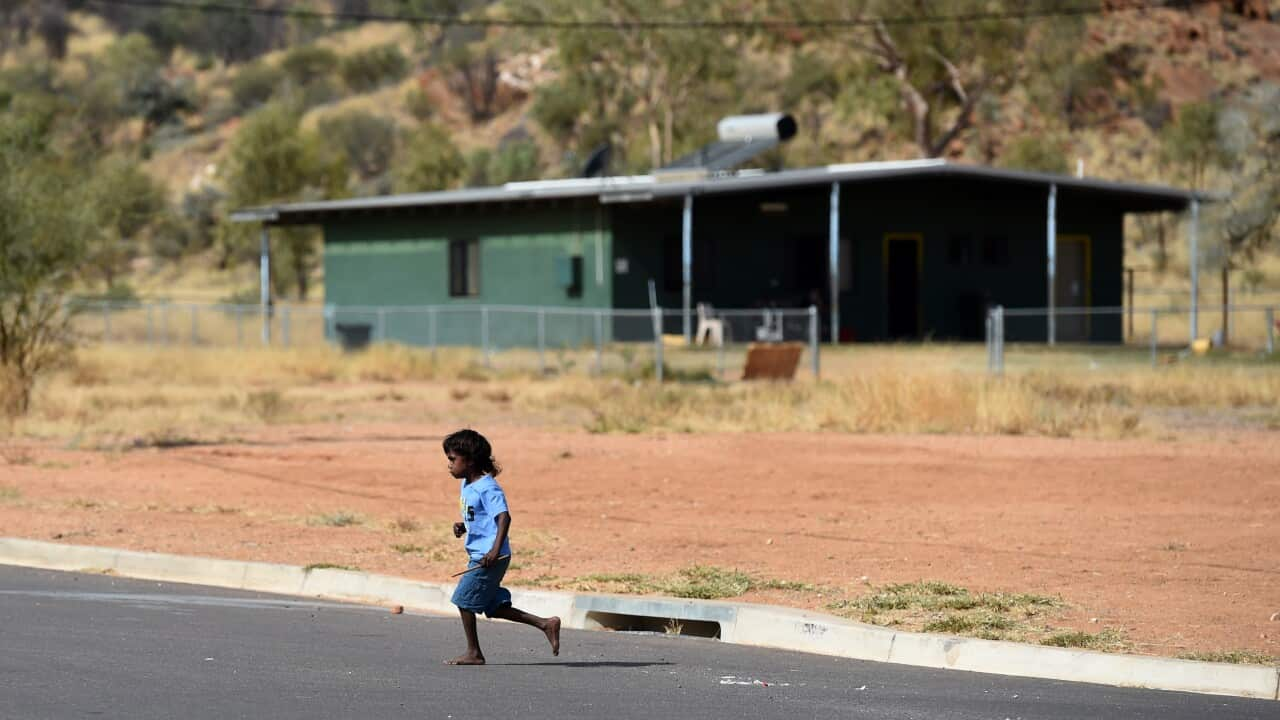The Northern Territory's failure to provide adequate public housing will be examined in the High Court, with implications for the nearly three million Australian households that rent.
In question will be whether the territory's government should compensate tenants in the remote community of Santa Teresa for the distress caused by the lack of reasonable living conditions.
"Today is really about saying there's an impact of terrible housing on people and people ought to be compensated for that," said Isabelle Reinecke, executive director of not-for-profit litigators Grata Fund.
"A third of Australian households are renters and the impact of the case could mean that those renters have the ability to hold their landlords accountable for substandard housing."

Grata Fund Executive Director Isabelle Reinecke, Patria Conway, daughter of Mr Conway (who passed away during the case) and Australian Lawyers for Remote Aboriginal Rights solicitor Dan Kelly at the High Court of Australia in Canberra. Source: AAP / Mick Tsikas/AAP Image
Blocked toilets and no air conditioning
The case comes after multiple bodies, including the NT Supreme Court, found the territory government was obliged to provide tenants in Santa Teresa with housing that was not only safe but also reasonably comfortable.
Residents of the Arrernte community near Alice Springs first brought their case to the NT Civil and Administrative Tribunal in 2018.
Many reported dealing with a lack of electricity, hot water, cooking and functioning toilets for extended periods.
Jasmine Cavenagh had a blocked toilet for eight months while Enid Young, the lead tenant in the case, had no air conditioning for 17 months and no door for five years.
"Aboriginal families living remotely across the territory have been left to live in dilapidated homes for far too long," said Skye Thompson, CEO of Aboriginal Housing NT.

Rubbish fills a would-be living room in a derelict uninhabitable house on a town camp near Alice Springs. Source: AAP / Dan Peled/AAP Image
"The deplorable state of housing in remote communities, its impacts on health, education and employment opportunities, should not be tolerated in a country as wealthy as Australia," he said.
"If landlords provide decent, safe and comfortable housing it won't mean anything. But where landlords do not provide proper housing, this will be another way to help renters."
The nearly 70 tenants from Santa Teresa will be represented by Australian Lawyers for Remote Aboriginal Rights and Grata Fund.
Territory Families, Housing and Communities said in a statement it was committed to ensuring remote public housing was safe, habitable and appropriate but declined to comment further.
It is expected a decision by the High Court will be reached later this year.













